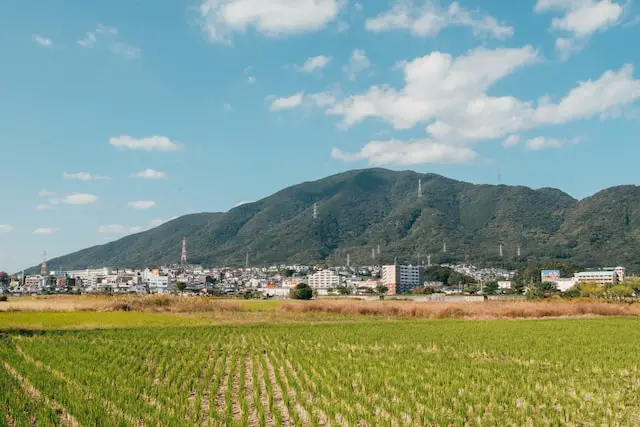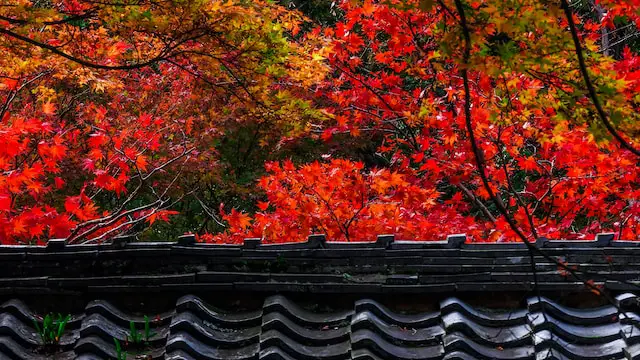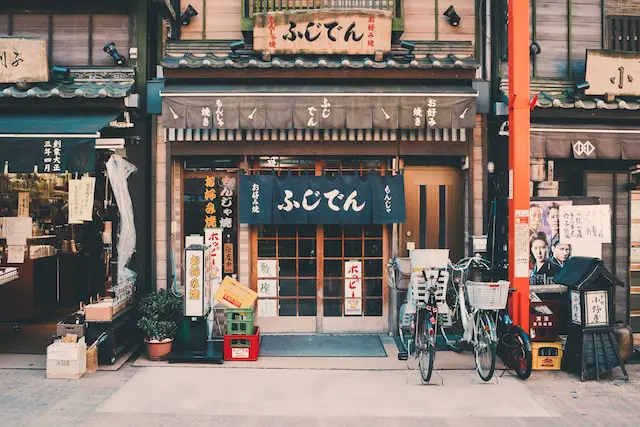Agritourism and farm stays are increasingly gaining popularity worldwide, and Japan is no exception. As urban dwellers yearn for a retreat from the city, Agritourism in Japan and Farm Stays in Japan offer the perfect solution. They connect us back to nature, providing the opportunity to immerse in the rustic charm of Japanese rural life.
These alternative travel options allow us to experience firsthand the unique cultural experiences in Japan that are woven into the fabric of the countryside. From rice planting to tea-making, farm stays enable us to live a day (or more) in the shoes of a local Japanese farmer, exploring the authentic lifestyle often hidden away from the typical tourist spots. So if you’re craving for a new kind of adventure, come and discover the expanding appeal of agritourism in the Land of the Rising Sun.
Agritourism Defined
Agritourism, a growing trend worldwide, merges the enchanting cultures of agriculture and tourism into one unique and engaging experience. But what is agritourism exactly? It is a form of travel that revolves around experiencing the robust rural life, often times through attending agricultural farms or engaging in farming activities. The concept resonates with the recent inclination of travelers to seek out genuine, enriching experiences that enable personal growth and cultural understanding.
In the global movement towards this immersive form of tourism, Japan stands as a notable advocate. Agritourism in Japan is definitely an escapade to consider, as richness in cultural practices and scenic landscapes provide the perfect backdrop for these rustic adventures. With its deep-rooted agricultural history and breathtakingly beautiful countryside, it is a haven for agri-tourists.
Japanese agritourism provides an escape from the typical touristic hullabaloo, taking you closer to nature and tradition. It offers a fantastic voyage into the hinterlands that is as educative as it is enjoyable, enabling tourists to appreciate the intricate connection between nature and the treasured customs of Japan’s rural life.
So, whether it’s indulging in the diligent process of rice farming, or exploring the mystic allure of tea farms, agritourism in Japan is a pursuit of soulful learning and cultural intimacy. It’s not just about seeing new places but also about immersing oneself in the local lifestyle, community, cuisine, and eco-conscious living, creating an unforgettable travel experience.
The Benefits of Farm Stays
Farm stays are an increasingly popular travel choice, providing a refreshing alternative to the impersonal, cookie-cutter experience of traditional hotels. Whether you’re a solo traveller, a couple, or a family, farm stays in Japan offer a range of benefits beyond just accommodation.
One of the most obvious benefits of a farm stay is the connection with nature it affords. Waking up to the sight of lush greenery, bathed in the soft glow of the morning sun, is an experience you’re unlikely to get in a high-rise hotel in the heart of a bustling city. Furthermore, you’re not just a spectator to the picturesque landscapes; you’re an active participant, contributing to the daily rhythms of rural life.
Each farm stay is unique, offering a variety of activities to immerse yourself in the cultural experiences of rural life in Japan. From working alongside locals in the rice fields to cooking traditional Japanese meals using homegrown ingredients, these hands-on experiences provide an authentic glimpse into the Japanese lifestyle that’s mainly absent in mainstream tourism.
What’s more, the interactions with locals offer an opportunity for a meaningful cultural exchange. Unlike hotels mostly staffed by fluently English-speaking personnel, farm stays may offer your host – an everyday farmer – with limited language abilities, thus adding a flavour of authenticity to your stay.
Finally, farm stays can be a boon for your palate. The food served is usually locally sourced, with many Japanese farm stays serving meals made from their own produce. Not only does this promise gastronomic delight, but it also supports local economies and promotes sustainable travel.
So next time you plan a trip to Japan, consider swapping the anonymity of a hotel for the wholesome charm of a farm stay. It could lend an unforgettable edge to your journey.
Agritourism takes on many fascinating forms in the Land of the Rising Sun, each providing unique elements that enrich your overall Japanese travel experience. These distinctive types of agritourism wonderfully weave Japan’s impressive natural beauty, local cultural practices, and agricultural heritage into a tapestry of delightful experiences.
First on our list is the immensely popular Nouka Minshuku, or farm guesthouses. These family-run businesses offer travelers the chance to stay in rural homes, take part in farming activities, and savor home-cooked meals prepared from freshly-grown produce. These guesthouses can be found throughout every region of Japan, from the snowy landscapes of Hokkaido to the lush fields of Kyushu. They’re the perfect way to not just see but experience Japan’s countryside.
Another great form of agritourism is the Minkaen, traditional Japanese folk houses turned into museums. These sites, such as the Nihon Minka-en in Kawasaki, allow visitors to explore Japan’s architectural history while learning about its agricultural past. It is a fantastic way to step back in time and delve into Japan’s deep-rooted farming culture.
For those who wish to delve deeper into Japanese food culture, participating in Cooking Classes held in rural areas is an excellent choice. These classes, often held on farms or in traditional houses, introduce visitors to local cuisine and the seasonal ingredients that make it exceptional.
Lastly, the DIY Experiences ranging from fruit picking to rice planting sessions are ever popular among locals and tourists alike. Notable places for these activities include the orchards of Yamanashi prefecture and the rice terraces of Niigata.
Whether living the rural life in a farm guesthouse or picking fresh fruits off a tree, you’re sure to find your own unique type of agritourism in Japan that resonates with your travel desires.
Experiencing Rice Cultivation
For those developed a fascination for rice cultivation in Japan, why not add a touch of adventure to your travel by immersing yourself in this integral aspect of Japanese culture? Rice farming forms the backbone of Japanese rural life, echoing centuries of heritage and tradition.
In Japan, a number of these experiences are available from Hokkaido in the northernmost region to Kyushu in the south. Yasuhiko Miyauchi, a farmer from the town of Nantan in Kyoto, leads one such immersive experience. Tourists can experience rice farming first-hand, venturing out into the paddy fields to plant or harvest under his knowledgeable guidance, learning about the unique cultivation methods and their significance.
Other unique ways of participating extend to exploring the ancient terraced rice fields of Genkai town in Saga Prefecture, or the Iwate Prefecture’s Esashi region where traditional rice farming methods are still maintained. These experiences open up a whole new perspective of Japanese rural life, away from the typical bustling cityscapes.
Yet another delightful aspect is the opportunity to interact with local communities – often over a communal meal prepared with freshly harvested rice. The taste of steaming, fragrant rice, straight from the fields you have spent time in, is incomparable, and adds an unforgettable sensory dimension to your travels.
In essence, experiencing rice cultivation is not just an activity, but a profound insight into Japan’s rich history, a deep-rooted tradition, and a way of life that continues to define its countryside character.
So, whether you’re an avid naturalist or simply want a unique adventure in your next Japan trip, be sure to add a rice farming experience to your itinerary.
The Allure of Tea Farms
Tea farming in Japan is more than just an agricultural activity; it’s a deep-rooted tradition spanning centuries of cultural Heritage. Whilst coffee may dominate Western preferences, this aromatic beverage sits at the heart of Japanese daily life and tradition, lending a sense of comfort and calm. If you’re a tea enthusiast or simply intrigued by agritourism, you can’t afford to miss the magic of Japanese tea farms.
In participating in tea-related activities, you’ll be awash in the soothing green landscapes of lush tea plantations and elevated to new sensory heights as you partake in traditional tea ceremonies. Two paramount destinations stand out when we consider Tea plantations in Japan; Shizuoka and Uji.
Shizuoka Prefecture, famously referred to as ‘Japan’s tea garden’, accounts for approximately 40% of the country’s total tea production. Here, you can join tea picking activities and learn how leaves are handpicked and processed. It’s also a prime photogenic spot, with picturesque views of tea terraces stretched out against the idyllic backdrop of Mount Fuji.
The second important tea region, Uji in Kyoto, is renowned worldwide for its superior quality Matcha – a finely ground powder of specially grown and processed green tea. Uji offers immersive experiences such as tea-grinding workshops and traditional tea-tasting sessions.
Visiting these tea farms gives you an inside look at Japanese tea farming practices, while also providing a peaceful escape from urban hustle and bustle. It’s an experience that embodies both the tranquillity of rural life and the rich cultural heritage of Japan.
So, whether you’re a tea-lover or a cultural explorer, journeying to one of these plantations promises unique insights and unforgettable experiences.
Immersive Fruit Picking Experiences
Embrace the idyllic charm of agricultural Japan through the wholesome, engaging activity of fruit picking. Often overlooked in the shadows of neon-lit bustling cities, fruit picking in Japan provides a unique hands-on experience in the country’s stunning countryside.
In the land of the rising sun, every season blesses the land with a variety of succulent fruits. From strawberries in winter to cherries in the summer and the famous Japanese persimmons in autumn, farms across Japan invite visitors to pick and enjoy these sweet delicacies straight from the tree.
Some popular locations include Yamamoto Sightseeing Orchard in Yamanashi Prefecture, renowned for its wide variety of fruits. Located near the beautiful Mt. Fuji, your fruit picking experience here is complemented by breathtaking scenery. Alternatively, the elevated terrains of Nagano Prefecture are famed for apples, where orchards like the Apple Farm offer unforgettable Japanese fruit farm experiences.
One of the most sought-after experiences in autumn is the persimmon fruit picking in Wakayama. At farms such as the Kishu Minabe Royal Hotel Farm, tourists can pick from an assortment of persimmon types, tasting each variant’s unique flavor. Additionally, many farms also offer fruit tasting, jam making and other associated activities, making your trip a complete orchard-to-table experience.
By engaging in fruit picking in Japan, you not only get to appreciate the produce’s freshness but also honor the hard work that goes into cultivation, thus gaining a deep appreciation of Japan’s agriculture and the bond between man and nature, a fundamental part of Japanese culture. A spellbindingly picturesque environment, coupled with the joy of harvesting your fruit, makes this a must-try activity for any agritourism enthusiast.
Getting Involved with Local Cuisine Preparation
Just as the rhythm of life slows down when you enter the serenity of rural Japan, you’ll also find yourself slowing down to appreciate every morsel of Japanese local cuisine. A quintessential part of the Farm Stay experience involves cooking with the freshest ingredients, all harvested from the fields you’ve just strolled—or even worked—in.
Fruit-veggie salads, soba buckwheat noodles, onigiri (rice balls), sushi, mochi (rice cakes)—all these dishes taste different when they feature just-harvested produce and you’re the one preparing it under the guidance of local farmers or experienced chefs. Plus, you’ll gain a deeper appreciation for the hard work farmers put into growing the food. It becomes an exercise in mindfulness, enhancing the taste of each dish you create and take part in cooking.
In many farm stays around Japan, you’ll find organized sessions for tourists eager to learn the art of Japanese cuisine. Many of these locations uphold the ethos of “Farm to Table Japan”, a movement promoting the use of local, seasonal ingredients for a sustainable and healthy lifestyle. Savouring a meal you’ve cooked using ingredients you handpicked from the surrounding farm is not merely eating; it’s a holistic, immersive experience of Japanese rural life.
Imagine joining a sushi-making class in the morning, catching fish from a local stream for the freshest sashimi, grilling farm-fresh vegetables for a wholesome dinner, or making soba noodles from scratch using organic buckwheat grown and harvested in the village. These unique experiences allow you to taste the genuine flavours of Japan and understand their deep connection to the land and seasons.
So, make sure to add a cultural culinary journey in your travel itinerary, when embarking on your agritourism adventure in Japan. It’s a gastronomic delight you won’t want to miss.
In the realm of ecotourism, agritourism in Japan is making impressive strides towards environmental conservation and sustainable practices, forming a core part of the country’s vibrant tourism sector. (SEO: Japan environmental conservation, Sustainability practices in Japan)
Japan’s agricultural sector has always placed a strong emphasis on harmony with nature. Agritourism perpetuates these values by promoting environmentally-conscious practices such as organic farming, forest conservation, and traditional, sustainable agricultural methods. Visitors not only delight in farm stays but also partake in these practices, gaining insights into the sustainable use of natural resources. It’s an experience that leaves a lasting impact – it’s both enlightening and enjoyable.
As you spend your time on a farm stay in Japan, you’ll notice a deep respect for nature ingrained in every activity. This mindfulness towards the environment extends from the cultivation of crops to the preparation of meals using local, seasonal ingredients. Many agritourism locations encourage guests to participate in this farm-to-table culture, reinforcing the notion of sustainability. (SEO: Japanese local cuisine, Farm to Table Japan)
Such initiatives in agritourism also play a pivotal role in preserving biodiversity. By promoting the cultivation of native crops and traditional farming methods, they support diverse ecosystems. This balance between tourism, biodiversity, and native culture makes Japanese agritourism a fine example of sustainable tourism.
Moreover, these efforts are not going unrecognized. The global community has applauded Japan’s advancements in sustainable agritourism, further solidifying the country’s place as a leading eco-tourism destination.
Embracing agritourism in Japan provides more than just an escape from the city’s bustle. It’s a chance to contribute and learn about eco-friendly practices that ensure a greener tomorrow. It’s a harmonious blend of travel, education, and environmental responsibility, creating experiences that are distinctively enriching, rewarding, and kinder to our planet.
Conclusion
In conclusion, agritourism and farm stays in the tranquil Japanese countryside offer travelers a truly remarkable journey. More than just a peaceful getaway, these travel alternatives offer immersion in Japanese rural life and rich cultural experiences that embody the country’s heart and soul.
From participating in age-old practices such as rice cultivation and tea farming to picking fresh fruits or cooking local dishes with farm-to-table ingredients, the possibilities for hands-on learning and cultural exchange are simply vast. Furthermore, agritourism in Japan is not just about embracing the pastoral life; it also advocates for environmental conservation and sustainability, highlighting how harmonious the relationship between man and nature can truly be.
So, for those contemplating a unique journey to the land of the rising sun, why not forgo the usual tourist traps? Step off the beaten path and experience Japan from a fresh perspective through agritourism and farm stays.




